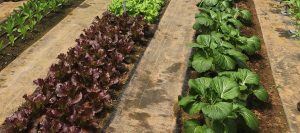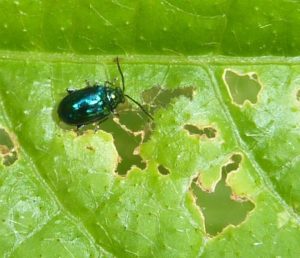As you eagerly await the bountiful harvest from your spring and summer garden, remember that pests are also eyeing your crops. Scouting for pests is essential to maintain plant health and ensure a plentiful harvest.
The Importance of Scouting
Scouting involves the early detection of pests and plant diseases through regular and systematic garden inspections. This proactive approach helps identify pests early and assess the damage they might be causing. Missing just a few days of scouting can lead to significant plant damage due to the rapid life cycle of many plant-eating insects.
Understanding Your Garden Environment
To effectively scout for pests, familiarize yourself with the plants in your garden and their common pest issues. Different plants attract different pests, so knowing what to look for is crucial. Monitor your garden regularly, at least once a week, paying close attention to the undersides of leaves, stems, and flowers. Look for any leaf discoloration, such as yellowing or browning, and any unusual color changes. Note any insect activity, including the presence of eggs, holes in leaves, skeletonized foliage, insect frass (droppings), and entry holes.
Tools Frequently Used in Scouting
Frequently inspecting your garden with the appropriate tools allows you to spot issues early and take steps to safeguard your plants. Common tools include:
- Traps: Used to catch and identify flying insects.
- Netting/Lures (Pheromones): Attract and capture specific pests.
- Sweep Net: Collect insects from plants.
- Containers: Collect samples to transport specimens for further examination.
- Hand Lens: For close inspection of small insects and eggs.
Common Garden Pests
Here are some common garden pests you might encounter while tending to your garden:
- Aphids: Small, soft-bodied insects that can be green, black, yellow, or brown. Often found on new growth, they cause curling and yellowing leaves and excrete sticky honeydew.
- Caterpillars (e.g., Tomato Hornworm): Large, green caterpillars with white stripes and a horn-like tail. They create holes in leaves, remove foliage, and damage fruits.
- Spider Mites: Tiny red or brown mites often found in clusters, creating fine webbing. They cause stippling on leaves, bronzing, and leaf drop.
- Whiteflies: Small, white, moth-like insects that fly up when plants are disturbed. They cause yellowing leaves, stunted growth, and secrete honeydew.
- Japanese Beetles: Metallic green bodies with bronze wings. They skeletonize leaves and damage flowers.
- Cutworms: Fat, brown, or gray larvae found curled under the soil surface. They cut off young seedlings at the base.
- Slugs and Snails: Soft-bodied, slimy creatures found in damp, shaded areas. They leave a trail of slime and create irregular holes in leaves and seedlings.
Scouting Techniques
Effective scouting techniques include:
- Visual Inspection: Check plants thoroughly, including the undersides of leaves and leaf axils.
- Sticky Traps: Place yellow sticky traps around the garden to catch flying insects like whiteflies and aphids.
- Shaking Plants: Gently shake plants over a white piece of paper to dislodge and spot tiny pests like spider mites.
- Soil Examination: Dig around the base of plants to look for soil-dwelling pests like cutworms.
Pest Management Strategies
Integrated Pest Management (IPM) relies on regular scouting for the most effective control. It combines several measures, including cultural, biological, mechanical, and chemical controls. gardeningsolutions.ifas.ufl.edu/…/integrated-pest-management.htm
Record Keeping
Maintain a garden journal noting the types of pests observed, population levels, and control measures taken. Track the success of different pest management strategies to refine your approach in future seasons.
By consistently monitoring your garden and employing a combination of these strategies, you can effectively manage pests and enjoy a healthy, thriving garden throughout the spring and summer seasons. For more information, contact your local extension office. Happy gardening!
- Winter Bliss and Climate Challenges in North Florida Gardens - December 11, 2025
- When the Ground Moves. - September 25, 2025
- Kalanchoe Species in Florida: Invasive Threats and Management - August 15, 2025


